The Announcement
This announcement for Chaos Agents has been years in the making, and we at Popularium could not be more excited to finally be able to share this with our community and the world.
Today we are announcing that Chaos Agents has been designed to be a “forever multiplayer game”, which is a multiplayer game that cannot be “killed” or taken completely offline such that players have no way to play it.
Our basic approach to doing this is by enabling dedicated servers for Chaos Agents, a traditional and battle-tested method that has been embraced by the PC gaming community since PC games have existed.
But there’s more to this announcement than just “Chaos Agents will support dedicated servers”. We developed Chaos Agents both so that it’s easy to host Dedicated Servers that can host Chaos Matches and verify the licenses of unique Agents and other items that a player has earned or bought.
To give our players more insight into why supporting these features is so important to us at Popularium, and how we plan to roll them out, we are writing this blog post in two parts. The rest of this Part 1 explains why it is important for Popularium to make sure that Chaos Agents has the Dedicated Server-related features outlined above, while Part 2 will explain the process, timeline, and some basic technical concepts around how we’re aiming to implement those features for Chaos Agents.
This journey has not been easy, and many challenges lie ahead. However, there was never any doubt that Chaos Agents, as well as future games from Popularium, planned to make every effort to ensure that players are able to play these games for a long, long time.
Thank you for being a part of our Chaos Agents journey, we are excited for all the adventures that lie ahead for our community and team.
Our Motivations
I have waited several years to write this post.
How long? Well, we can go back at least to 2021, when I started discussing the possibility of building games together with Richard Garfield. We both very quickly agreed that letting players have their own unique Agents, and giving them assurances that their money was well spent — that they would be able to enjoy their Agents for a long time without having to worry about the game “going offline” or “being killed”.

Versova, Mumbai
But in truth, we can go back much further in time. As I went down the rabbit hole of trying to calculate exactly how many years, I wasn’t able to stop till I rewinded back to the day in December when I walked into DataCorner in Versova, Mumbai and encountered a glorious box labeled “Baldur’s Gate 2”.
Growing up in India in the 90s, the most reliable method of getting your hands on PC games (that weren’t a decade old) was to go to “Local CD/DVD Pirate” and hope that he had a copy of the latest PC game along with a copy of the recently released blockbusters such as “The Matrix”. DataCorner was one of the few stores that stocked legit copies of games, albeit months or sometimes years after their release. My buddy over at DataCorner would call my home’s landline whenever he got new stock, and walking over to the store to check out new treasures remains one of my favorite memories.
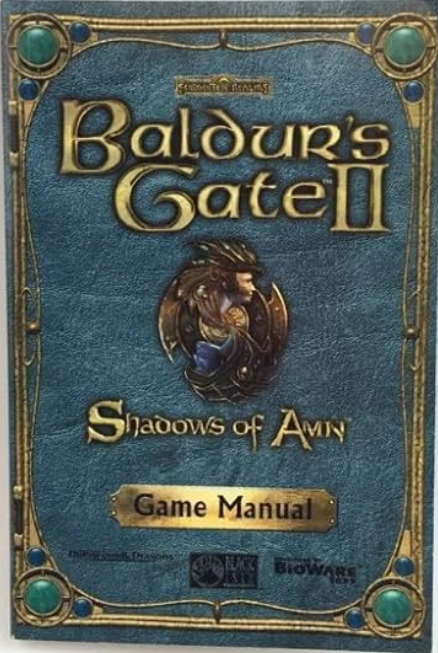
Legendary Game Manual for Baldur’s Gate 2
So, it felt like a dream to walk into DataCorner that December and see Baldur’s Gate 2, the game I had been obsessively reading about for the past several months, was here within arm’s reach just a couple of months after its release. It felt nothing short of a miracle. Another miracle was collecting enough pocket and odd-jobs money to afford the astronomical sticker price on the Baldur’s Gate 2 box, but all the labor was worth it when I cracked open the delightful, massive tome of a manual during lunch at high school and spent the rest of the day gobbling up every spell listed in there.
What changed for me that day was accessibility, the mere ability to play PC games without having to pirate them, and the feeling that a world of wonder had opened up for my favorite hobby, later to be my profession. Before that, the only real way for me to play games like GTA III and Deus Ex was to get my relatives in the US to ship me copies of the games from California to Mumbai, India.
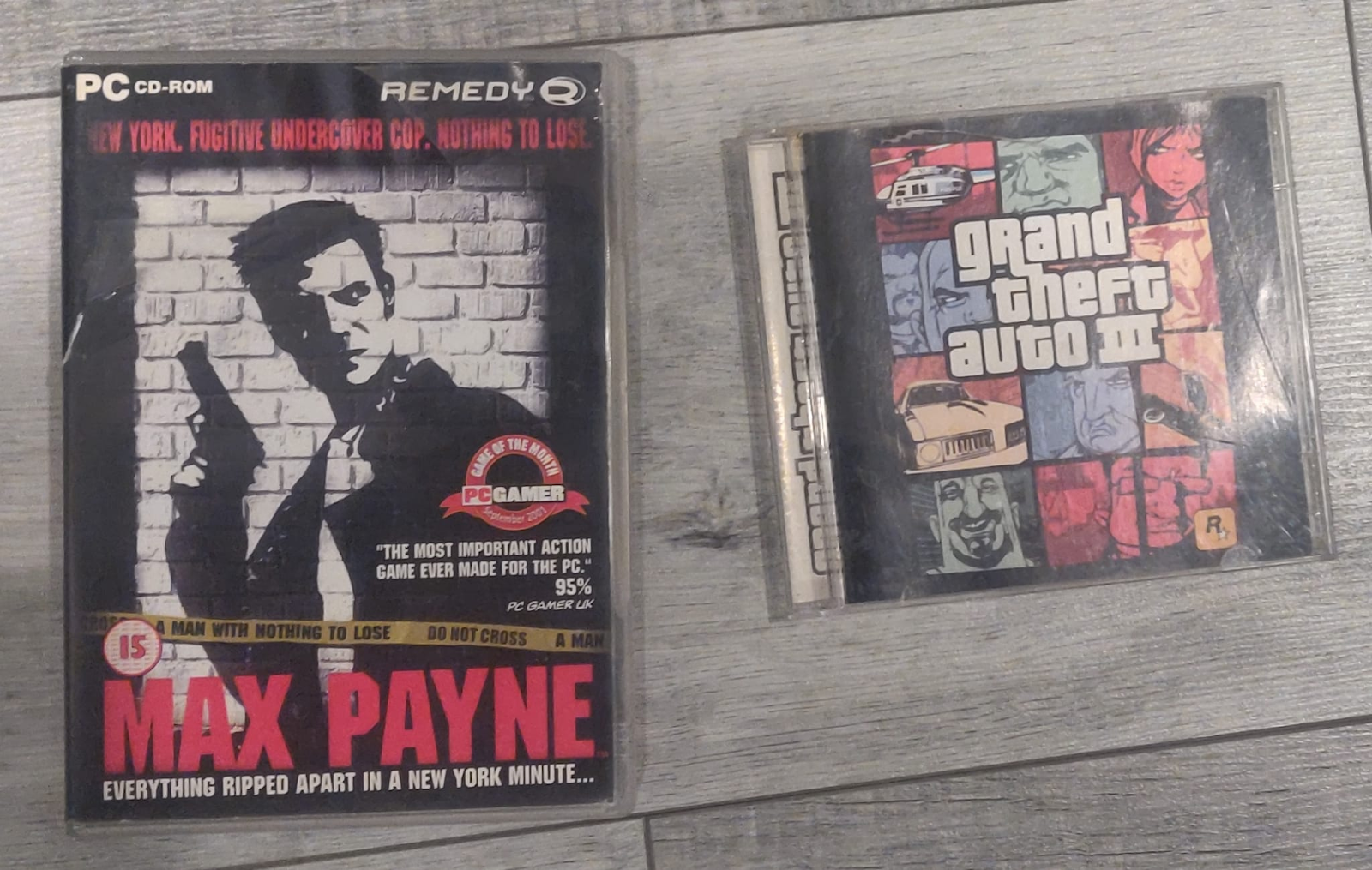
My ancient imported copies of Max Payne and GTA III
This accessibility took the form of having the physical media (CD-ROMs and, later, DVDs) that let me play these games regardless of where in the world I lived. When I traveled to the US for college, my most treasured CDs and DVDs came with me — including Deus Ex, No One Lives Forever, Max Payne, GTA IV, Black and White, The Sims, and more. Looking over my collection of games, I see a boxed copy of World of Warcraft and another of the original Xbox version of Knights of the Old Republic, both games that have deeply influenced my life. The most important gaming experiences that I have had are tied to the media that helped me experience them.
A couple of decades later, I had the incredible opportunity — another childhood dream come true — to co-found a company and build games with Richard Garfield.

Richard’s games tend to have a unique feature: they are “massively-modular” as he calls the genre, allowing the player to construct their game engine by collecting and combining many small pieces — most famously, a deck of Magic cards. Players tend to develop close relationships with these game pieces, cards, and decks, which is quite rare in gaming.
Going a step further, for Chaos Agents, Richard wanted to build the game in a way where every player would own globally unique game pieces — superhero Agents with unique skill trees, unique cosmetics, names, backgrounds and more.
Very quickly, we agreed on the fact that Chaos Agents, and other games that Popularium would make, would do whatever it takes to let players: 1. Play these games when they want, on whatever platform they want. 2. Have the ability to own and transact globally unique in-game assets. 3. Have a way to play Chaos Agents with their unique Agents forever, just like they are able to use their Magic cards forever.
For Richard, the motivation behind making these commitments to our players was quite obvious. Richard has spent over three decades building games that players buy at stores and take home with them. Players have collected Magic cards worth thousands of dollars over decades that are locked in a closet or still being used to play in active competition. The fact that players would not only have a way to buy globally unique stuff for our games, but that they would also be able to keep playing these games even after we stop supporting them officially was an expected feature of Richard’s games — you own and can play with your Magic cards irrespective of whether they are in print or officially supported in current formats.
For me, the motivation was a combination of my relationship with physical media, and the assurance that they used to give me that my games were mine “forever”, and to restore that trust that has been eroded over the years.
Causes and Symptoms of Games Being “Killed”
I have witnessed, up close, the transformation of the games industry from physical-default to digital-default. In fact, I met our third co-founder, Jon Bankard, at Xbox when we were building the very first version of Xbox’s PC Games Marketplace. It’s a reality of the software business that the customer buys a license to use the software, not the software itself. A fun anecdote that Jon and I like to share is that one of the most-requested features for our PC Games Marketplace was for a player to pay extra to get a physical copy — or even just an empty box — of the game. The accessibility, the memories, and the relationship that those CDs, DVDs, and game boxes represent matter to players.
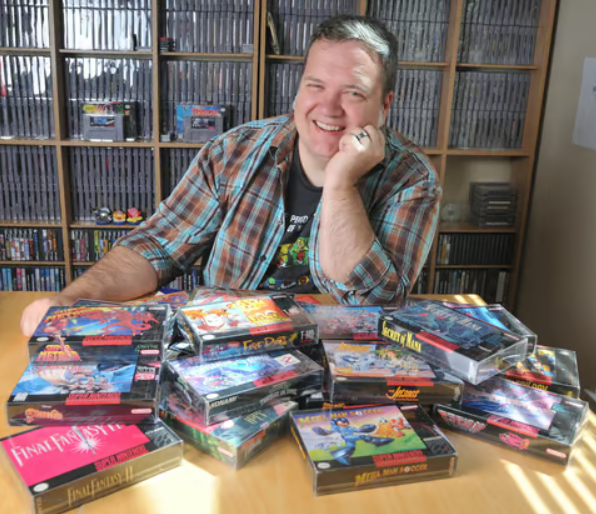
Jon Bankard with his prized classic games collection
Dedicated server support for multiplayer games was an expected feature for multiplayer-heavy games. It was almost unimaginable for a new Quake or Unreal Tournament to ship on PC in the 2000s without giving players the ability to host and join their own game servers. In fact, when I was at the Xbox Live team helping launch Halo 2 on PC, ensuring the Xbox Live service could support dedicated servers for PC players was a huge priority.
With the introduction of managed networking services such as Xbox Live and PSN on consoles, the expectation of dedicated servers for multiplayer games gradually became non-standard — not just for consoles but also for PC games. PC ports were often an afterthought in the 2010s, and developers such as Blizzard who focused solely on PC games also expanded their own services such as Battle.net and Steamworks, further reducing the prevalence and expectations of dedicated servers.
With seasonal and downloadable content becoming the primary business model for multiplayer-only games, the expectation of dedicated servers is now nearly nonexistent, beyond (primarily) PC games of the survival / base-building genre (hat tip to games like Valheim, V Rising, Factorio, Rust, and the recent Enshrouded for keeping the dedicated server flag flying) with the occasional legacy PvP game such as Dota 2.
As a concerning side-effect of the near-complete shift to digital-first distribution for PC games (and video games in general), we seem to have also taken away the right for a player to simply play the game that they paid for. This wasn’t a software licensing or legal issue, it was simply that removing the requirement for games to be shipped on physical media somehow also removed the requirement for those games to be functional after a period of time for those who paid money to play those games.
Before games like Fortnite and Call of Duty made the live-service business model a staple of the industry, only MMOs like World of Warcraft or PvP games like the original Counter-Strike would enjoy an extended lifespan — the live-service model made that more prevalent across the industry. As a downside, these games have also set the expectation that if the developer or publisher decides to stop supporting the online services required for the game to function, the player loses their ability to play the game entirely.
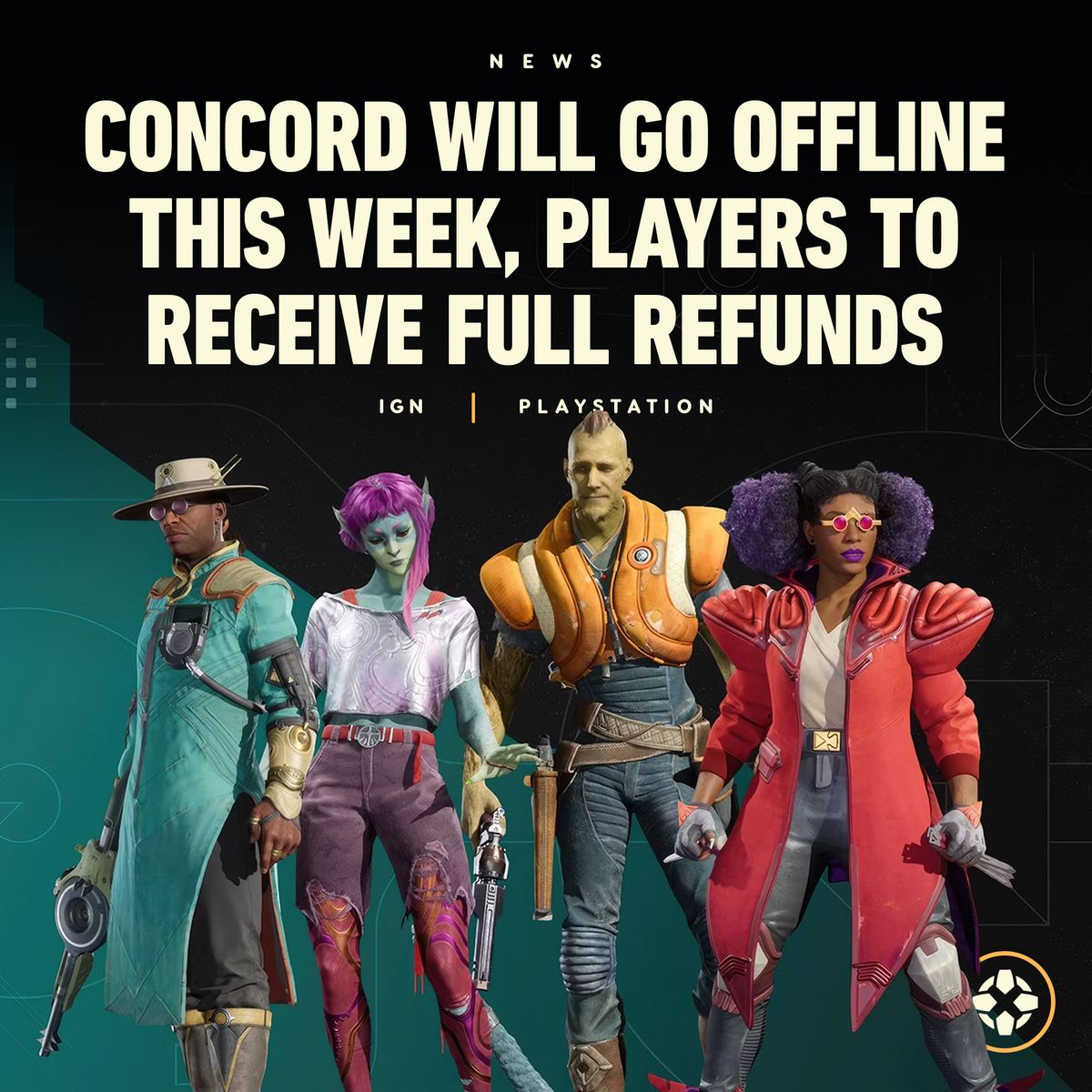
The problem is of course most easily visible in live-service based games, with The Crew and Concord being recent high-profile examples. The problem goes deeper however, where digital distribution has also come to mean that players can lose access to even single-player games that they have purchased, if the publisher or marketplace decides to stop supporting them. I have witnessed, first-hand, as services that I helped build shut down, taking with them thousands of dollars and hundreds of thousands of hours invested by players in those games and services. 20 years ago this would have been inconceivable.
Paying for a game only to have it go permanently offline (in the case of Concord, within a couple of weeks) is not the way any industry should treat its customers. The fact that gamers are making their voices heard on this issue brings me a great deal of joy and hope.
It was an easy decision for Richard, Jon, and me to decide that Chaos Agents would not suffer this fate.
With Chaos Agents, we hope to create a meaningful example of a multiplayer live-service game built around the commitment of players able to enjoy it as long as they want to — if a small indie studio like Popularium can make this commitment, so can every AAA game publisher.
The Challenges
Making this commitment wasn’t as easy as just promising dedicated server support for Chaos Agents.
Chaos Agents has an additional level of complexity beyond even a typical live-service multiplayer game in that each Agent is globally unique and is licensed to be used by one player at a time.
Enabling this functionality to work with dedicated servers is complex: Each player-run server must verify the licenses for all possible unique Agents and in-game items for all players, and we did not want to use blockchain solutions that were not popular with mainstream gamers.
Further, each Agent has a unique look and feel, and it’s not possible for the Chaos Agents client to contain the details and models of every possible Agent in existence.
As a result, our goals were two pronged: 1. Let a player run a dedicated server to host official Chaos Agents Matches. 2. Allow the dedicated dervers to verify the licenses for various Agents and other in-game items, and determine whether a Chaos Agents client has the rights to use those items in game. This becomes especially tricky if we don’t have an authoritative server run by Popularium to verify these licenses.
These requirements made the technical challenge (as well as the time and resources needed to build Chaos Agents) much higher than it would otherwise be (and the core game was already a technical beast to build, given its heavy compute and security requirements.) It wasn’t, therefore, an obvious decision for a nascent, recently-formed company of 6 people to decide that this undertaking would be worth it.
Several advisors asked us to consider the risk we were taking. Several investors tried to convince us that we had a world-class game development team, why not just focus on building a great game. Let someone else worry about how players could keep playing multiplayer games… Unfortunately, there was no one else out there who could do that for us and our players.
Ultimately, given the conviction that we all had in ensuring that every paying player had the opportunity to play Chaos Agents for as long as they wanted, in the way they wanted, it was an easy decision to make.
Dedicated Servers and Chaos Vaults
On top of building an incredible game and bringing the new genre of Autobattler-Royale to life, we had to build tech to fulfill our promises to our players on being able to enjoy Chaos Agents — with their own Chaos Agents — on any platform, including dedicated servers that can run themselves. So that’s what we did by building “Chaos Vaults”.
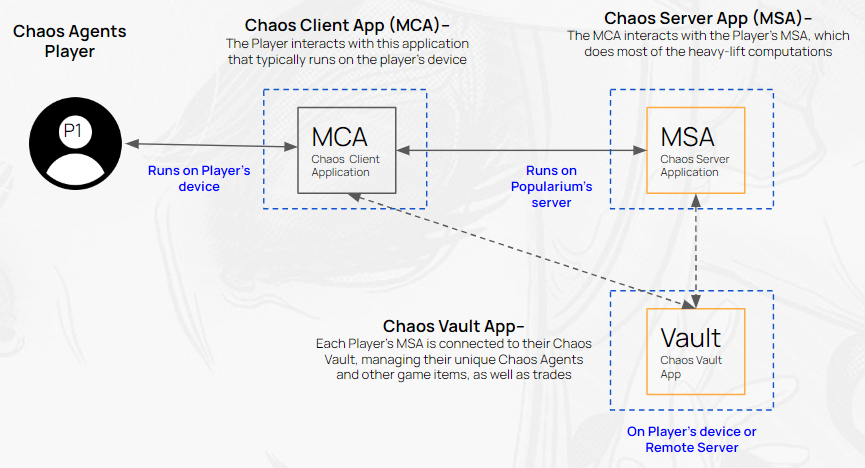
The Chaos Vault will allow a Chaos Agents client or dedicated server to recognize licenses for the unique Agents and other items owned by the player. Chaos Agents’ servers use tech similar in design to peer-to-peer file-sharing networks like Napster or BitTorrent to sync Chaos Vaults among dedicated server and clients and to enable licenses for their unique Agents and other items to be verified.
The player will be able to access their Chaos Vault in one (or both) of two ways: 1. Chaos Vault App on Local Machine: The Player can run the Chaos Vault App on their local computer (along with the Chaos Agents client) and access their Chaos Vault offline. 2. Chaos Vault App on Remote Server: The Player can access their Chaos Vault on a remote server that they have full control over (including being able to download a local copy of their Vault).
The Features
Over the course of Chaos Agents’ releases, from Early Access through to general retail, we want to enable 4 specific dedicated server-related features:
Feature 1: A Chaos Agents player will be able to run a dedicated server to host Chaos Agents Matches.
- Players will be able to download a copy of “Chaos Agents software” comprising:
- The Chaos Agent PC client (same as the Steam client): That can be installed on a PC / Mac and used to connect to a Chaos Agents server.
- The Chaos Agents dedicated server software: This enables the player to host a Chaos Agents dedicated server that other Chaos Agents clients can connect to.
Feature 2: The player-run dedicated server can register with the Chaos Agents Network to become a “Registered dedicated server”.
- This allows the dedicated server to receive all the same content updates as the Popularium-run Chaos Agents servers.
- Matches run on the player-run dedicated server count towards the official statistics maintained by Popularium, including for seasonal content.
Feature 3: License verification using “Chaos Vaults”: The player-run dedicated server will be able to use “Chaos Vaults” to:
- Manage all content that the Player has purchased from Popularium and other players — including globally-unique Agents, cosmetics, and other player-specific items.
- Verify the license (issued by Popularium) that confirms the player’s ownership of their specific Agents, cosmetics, and other items, including from other Chaos Agents dedicated servers and clients.
Feature 4 (Future): In the future, if Popularium has to stop supporting the Official Chaos Agents Network, then:
- Players will be able to keep playing Chaos Agents by running their own dedicated servers.
- Other Players will be able to join the player-run dedicated servers with their Chaos Agents clients.
In Part 2 of this blog, we’ll go into details of the roadmap for rolling out the dedicated server features, along with some basic technical details on how the features are being implemented.
Gratitude and What’s Next
Being able to announce the dedicated server features that will make Chaos Agents a “forever multiplayer game” is an important milestone in our development.
It comes after years of planning, design, and careful development of the Chaos Agents server and network architecture to enable the framework for these features, along with the development of the actual Chaos Agents game, in itself a massive undertaking.
None of this would, of course, be possible without the community that has grown to support Chaos Agents over the past two years. It started with our amazing group of advisors and friends who encouraged us with feedback and support from the time that Chaos Agents was nothing more than a design document, and have helped us take every step over the past 3 years that has made this journey possible.

Over the past year, our incredible playtesters have helped us water a seed of a prototype into a full-fledged game with their regular feedback, play, and general encouragement. Many have also put their hand up to help the development of Chaos Agents in many ways — helping us with our technology, community, and have even invested in Popularium.
In fact, a majority of the investment that has made the development of Chaos Agents possible has come from investors who have played Magic for years, sometimes since their childhood, and those who understand the raw potential of having a mind like Richard Garfield’s bring his decades of game design riches and firepower to tackle the autobattler genre — a genre ready for its time in the spotlight.
Today’s announcement is as much a result of the work of the Popularium team as it is of our community of playtesters, advisor, investor and friends who have supported a crazy notion from its infancy to its chaotic teens, and laid the foundation for an even more chaotic adulthood.
And today’s announcement is one of many that will hopefully show you that the relationship that Chaos Agents is building with its players goes far beyond the normal. If you have already experienced this — thank you, we could not be more grateful. If you haven’t experienced this yet, let us invite you into the Chaos Agents Alpha with the promise of a fun game, great community, and an experience unlike anything you have experienced with a video game before.
Continue to Part 2: To learn more details on the phases, timeline, and tech for implementing the Dedicated Server features, check out **Part 2 of this blog.**